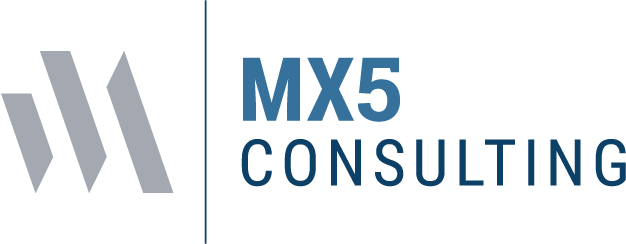Scaling Leadership from Within
Internal coach development today’s rapidly evolving business landscape, organizations are realizing that sustainable growth doesn’t just come from new technologies or market strategies—it comes from within. Scaling leadership through coaching is becoming a growing priority, with forward-thinking companies investing in internal coaching programs to unlock their employees’ full potential. As endorsed by global organizations like the International Coaching Federation (ICF), developing an internal coaching culture is not just a trend; it’s a transformative approach to leadership development.
This article examines the design of an impactful internal coaching program, the benefits it brings to organizations, and the strategic role of internal coach development in cultivating future leaders.
What Is an Internal Coaching Program?
An internal coaching program refers to a structured initiative where trained employees (often senior managers, HR professionals, or designated coaches) provide coaching to their peers or direct reports within the organization. Unlike external coaching, which is outsourced to professional coaches, internal coaching leverages the unique understanding of organizational culture, dynamics, and goals that only insiders possess.
Why Internal Coaching Matters
According to the International Coaching Federation, coaching is one of the most powerful tools for leadership development, employee engagement, and organizational agility. Here’s why internal coaching is gaining momentum:
-
Cost-Effective: Developing internal coaches is more economical than hiring external professionals for every engagement.
-
Cultural Alignment: Internal coaches understand the nuances of company values, mission, and politics, making their guidance more relevant and actionable.
-
Scalable: Once a foundation is built, internal coaching programs can grow organically, reaching more employees across departments.
-
Trust and Continuity: Long-term relationships and regular touchpoints foster trust, accountability, and consistent performance improvement.
Scaling Leadership Through Coaching
Great leaders don’t just manage—they inspire, develop, and elevate those around them. Coaching empowers managers to adopt a leadership style that is more collaborative, empathetic, and visionary. An internal coaching program supports this transformation by:

-
Encouraging active listening and constructive feedback
-
Fostering a growth mindset across teams
-
Supporting leaders in navigating complex change and uncertainty
-
Creating safe spaces for learning, reflection, and experimentation
When integrated into the organization’s broader leadership development strategy, coaching becomes a catalyst for cultural and behavioral shifts. It transforms transactional managers into transformational leaders.
Key Components of an Internal Coaching Program
Designing an internal coaching program is not a one-size-fits-all process. It requires careful planning, support from leadership, and ongoing refinement. Here are the core components:
1. Executive Sponsorship
A successful coaching program starts with visible buy-in from senior leadership. When executives advocate for coaching, it sets the tone and signals its importance to the wider organization.
2. Program Goals and KPIs
Clearly define what success looks like. Common goals include increasing employee engagement, improving leadership effectiveness, enhancing team collaboration, and reducing turnover. Measure progress with KPIs like coaching satisfaction scores, behavioral change assessments, and performance improvements.
3. Coach Selection and Training
Internal coaches must be carefully selected based on their interpersonal skills, credibility, and commitment. Training should follow recognized standards, such as those provided by the Coaching Federation, ensuring coaches adhere to ethical guidelines and effective methodologies.
4. Coachee Readiness and Matching
Not every employee is ready for coaching. Assess readiness through self-assessments or manager recommendations. Match coaches and coachees thoughtfully, considering personality, department, and developmental needs.
5. Structured Sessions and Tools
Provide templates, toolkits, and frameworks to help coaches run impactful sessions. Tools like GROW, CLEAR, or the ICF core competencies offer consistency while allowing for personalization.
6. Confidentiality and Boundaries
Coaching only works when there’s trust. Establish clear boundaries, confidentiality agreements, and codes of conduct to protect the integrity of the coaching relationship.
7. Ongoing Development and Supervision
Even the best coaches need support. Offer peer coaching circles, supervision sessions, and refresher workshops to maintain skill quality and motivation. This is vital for long-term internal coach development.
Internal Coach Development: Growing Talent from Within
Developing internal coaches is more than just a training initiative—it’s a long-term investment in leadership sustainability. Here’s how organizations can support internal coach development:

-
Certification Pathways: Encourage coaches to pursue ICF or similar credentials.
-
Mentorship Programs: Pair new coaches with experienced mentors to accelerate learning.
-
Recognition and Incentives: Acknowledge the contributions of coaches through recognition programs, stipends, or inclusion in talent pipelines.
-
Feedback Loops: Collect feedback from coachees and use it to continuously refine the coaching style and program structure.
By investing in their people, organizations foster a sense of ownership and pride, turning internal coaching into a prestigious role that attracts top talent.
Case Example: Coaching in Action
Consider a mid-sized tech company struggling with high turnover among team leads. By launching an internal coaching program led by experienced project managers, the organization provided one-on-one coaching focused on communication, delegation, and stress management.
After just six months, employee engagement scores improved by 22%, and turnover among team leads dropped by 35%. Participants reported feeling more confident and connected to the company’s vision. The internal coaches, in turn, developed their own leadership capacity and were later promoted to strategic roles.
The Future of Internal Coaching Programs
As hybrid work models and digital transformation continue to reshape the workplace, coaching will remain a critical tool for adaptation and growth. Organizations that proactively design internal coaching programs are positioning themselves to navigate complexity, retain top talent, and lead with purpose.
In alignment with the principles of the International Coaching Federation, a well-executed internal coaching strategy not only develops better leaders—it builds a resilient, human-centered organization from the inside out.
Final Thoughts
Internal coaching programs are no longer a “nice-to-have”—they are a strategic necessity for organizations looking to thrive in today’s competitive world. By scaling leadership through coaching and nurturing internal coach development, companies create cultures of continuous learning, trust, and performance.
Whether you are starting from scratch or expanding an existing initiative, the journey to designing an internal coaching program begins with a single step: believing in the untapped potential of your people.




